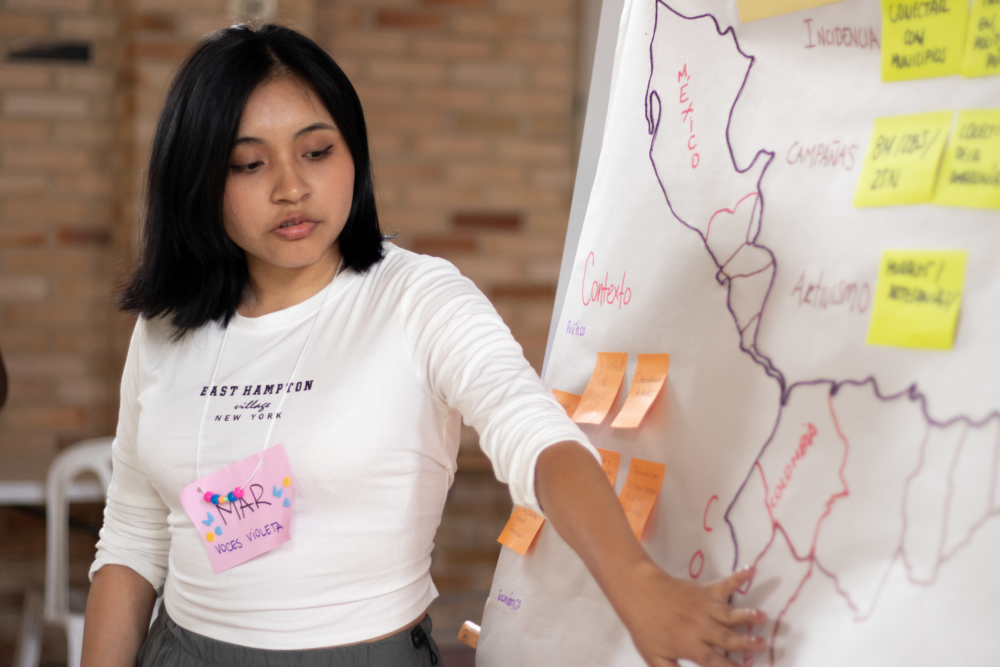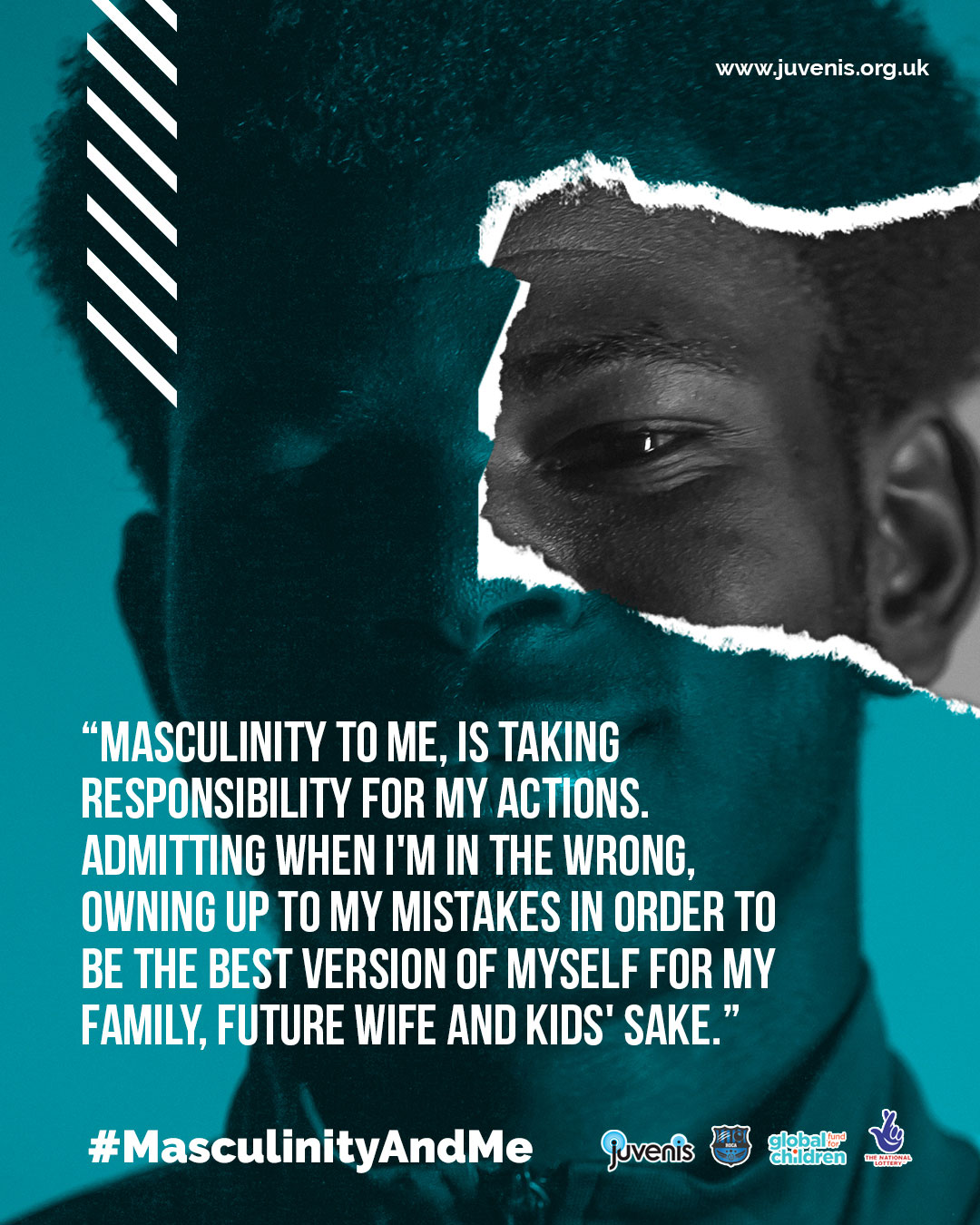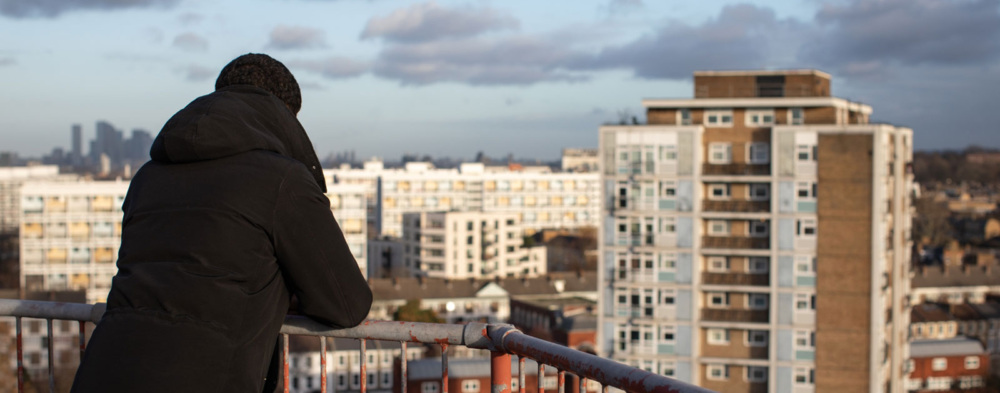
Youth power
Youth power
This guest post was written by Cyrus*, a young person who has received support from GFC partner Juvenis in London. James Hopkirk, the creator of South London Stories, edited the blog post.
When they first introduced me to [Winston] at school, I was very cautious. I was 15 and because of what I’d been going through at home, I wasn’t comfortable speaking to men. It took time before I realized that this guy was the real deal.
I was a bad youth at school. Long-term exclusions [suspensions], out on the streets – and when I was in, I wasn’t focusing on lessons. I did not care about my GCSE [high school exams].
A lot of the issues were at home – domestic abuse from my mum’s ex-partner. That made me very angry and made me not want to be in the house. So where else am I going to go? The street. When I went to school, I saw it as a playground, I didn’t see it as a place of learning. I was going through madness at home, school was an escape – I didn’t want to just sit down and write.
They didn’t tell me why they introduced me to [Winston], but considering how I was behaving, it wasn’t that hard to understand. The day he came, I’d just come back from a behavioral [alternative education] unit, because I robbed somebody from my school. And I did so many things before that, I thought it was going to be the last straw. But for whatever reason, the head teacher said, “I’m giving you one more chance.”
I’ve seen a lot of people working in this sector and most of them don’t really care – they’re not in it for a reason, they’re just doing it for money. When you’re doing this kind of work, it’s a humanitarian job, and you can always tell if they’re doing it for the wrong reasons.

This guy, though, he took his time and would just come into school and speak to me about the things that I went through, my GCSEs, and stuff like that. As soon as I told him I grew up without a father, he was cautious. I think he straightaway understood that I didn’t trust men.
At that time, a lot of the time, I was out on the streets doing things I shouldn’t have been doing. I was dealing drugs, affiliating myself with gang members. To this day, I still can’t go to certain areas because of things that have happened.
The difference between me and a lot of my friends then – they’re still my friends, although unfortunately a lot of them are in jail – was that I always had some sort of future in my head. I had one foot in the streets and one foot out. I knew, even at 15, that I wanted to stop, because I knew that once you get into the cycle, most likely you’re not going to get out.
What I didn’t understand was how important school was. Winston kind of made me see that, and that’s when I started buckling down in lessons a bit. I told him that it was too late, I’d missed three years of school, I couldn’t make it up in the space of a year. But I tried, and he helped me settle down.

When I was younger, I’d come to him with every single thing. Now, as I get older, I prefer to do more things myself. But if there’s nothing else I can do, then yeah, he’s my lifeline. Recently, I asked him if he could find me a [Security Industry Authority] course, which helps you get security work – and he’s found me one already.
I started boxing when I was 17. It turned out I was pretty tight at it, and it’s helped me stay on the straight and narrow. I was doing it every day until coronavirus, because now everything’s shut down. Lockdown didn’t really bother me – the only thing that annoyed me was the boxing gyms being closed.
A lot of adults are talking about coronavirus making things difficult for young people – but they were not paying attention if they think these problems are new. It’s just made it worse. I think it’s making people finally realize some of the problems that the younger generation is facing.
I think the biggest thing affecting young people in terms of employment is mental health. When I talk about mental health, I talk more about young Black people, especially young Black men, because for us it’s brushed away.
I think it’s also about opportunities, because the opportunities for young people are dire. In terms of getting work now? Forget about it. It wasn’t easy to get a job before; you want to get a job now?
I’m on [government] benefits at the moment, but I’m biding my time. As soon as this pandemic stops, I’m going to get back to my boxing and I want to do it professionally. I know I’m good enough to make it – that’s why I’m doing it. In the future, maybe I’ll have my own promotion company, set up my own gym, help young people come up. And then maybe get into politics – because a lot needs to change.
At school, it was like being surrounded by a bunch of suicidal kids. We weren’t going to kill ourselves, but it was an attitude of if you die, you die – oh well. There wasn’t much to look forward to. How are they going to care about GCSEs when they don’t care about their own lives?
If I was talking to a young person like me, I know what to say, but I don’t know if I’d say it. At that age, people are hardly listening. But I’d just tell them how it is. I’d tell them what they’re going into, what it’s really like, and it’s up to them whether they take my word for it.
I come from a broken house and I was exposed to the streets, and while I know I’m not perfect and I’ve still got a long way to go, a lot of what’s changed is thanks to Winston. Looking back, I think I’ve done pretty well. I was going down the wrong road but I came out of it – but I’m probably in the minority. I think the majority of youths that go down the wrong path stay on it.
With an emphasis on serving youth involved in or at risk of criminal behavior, Juvenis helps young people in South London to turn their lives around and re-engage with employment, education, or training. Its specialized programs include mentorship for youth in police custody, therapy and life skills training for survivors of domestic violence, an expressive safe space for girls and young women, and individualized support for disenfranchised youth entering the job market. Juvenis is part of GFC’s Exploring Masculinities in England initiative, a cohort of 10 organizations from across England working with young people to explore healthy, positive, and expansive masculinities.
*Cyrus’s name has been changed to protect his identity.
Header photo: Cyrus pictured on a balcony. © James Hopkirk
